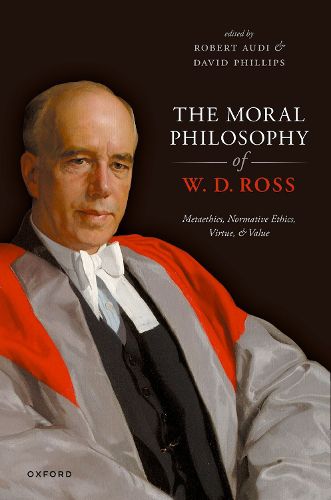Readings Newsletter
Become a Readings Member to make your shopping experience even easier.
Sign in or sign up for free!
You’re not far away from qualifying for FREE standard shipping within Australia
You’ve qualified for FREE standard shipping within Australia
The cart is loading…






This volume not only explores Ross's moral philosophy and ethical theories, but also his aesthetics, intuitionist epistemology, metaphysics, and applied ethics. W. D. Ross is a major figure in the history of moral philosophy and his work has been increasingly discussed since the 1990s. He provided the first sustained articulation and defence of a new moral theory: a moderate deontology embodying a pluralistic theory of the right built around his most famous innovation, the concept of prima facie duty. His theory of the good is also pluralistic and, particularly in incorporating moral goodness, can be fruitfully contrasted both with Sidgwick's hedonism and Moore's value pluralism. Ross is an exemplar of clear moral reflection, a defender of the irreducible plurality of common-sense moral standards, a powerful opponent of absolute certainty in moral matters, and an insightful critic of utilitarianism. As a great Aristotelian scholar with a mastery of Aristotle's virtue ethics, he is able to clarify how practical wisdom informs moral deliberation and to portray, in illuminating detail, both virtue and virtuous action as paradigms of intrinsic value.
$9.00 standard shipping within Australia
FREE standard shipping within Australia for orders over $100.00
Express & International shipping calculated at checkout
This volume not only explores Ross's moral philosophy and ethical theories, but also his aesthetics, intuitionist epistemology, metaphysics, and applied ethics. W. D. Ross is a major figure in the history of moral philosophy and his work has been increasingly discussed since the 1990s. He provided the first sustained articulation and defence of a new moral theory: a moderate deontology embodying a pluralistic theory of the right built around his most famous innovation, the concept of prima facie duty. His theory of the good is also pluralistic and, particularly in incorporating moral goodness, can be fruitfully contrasted both with Sidgwick's hedonism and Moore's value pluralism. Ross is an exemplar of clear moral reflection, a defender of the irreducible plurality of common-sense moral standards, a powerful opponent of absolute certainty in moral matters, and an insightful critic of utilitarianism. As a great Aristotelian scholar with a mastery of Aristotle's virtue ethics, he is able to clarify how practical wisdom informs moral deliberation and to portray, in illuminating detail, both virtue and virtuous action as paradigms of intrinsic value.